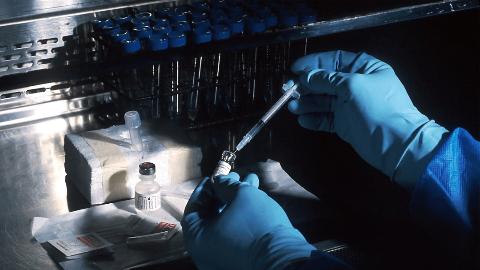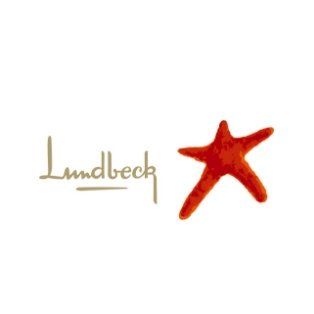预约演示
更新于:2026-02-27
Tovinontrine
更新于:2026-02-27
概要
基本信息
药物类型 小分子化药 |
别名 AF-68722、AF68722、CK-1598 + [3] |
靶点 |
作用方式 抑制剂 |
作用机制 PDE9A抑制剂(磷酸二酯酶9A抑制剂) |
治疗领域 |
原研机构 |
最高研发阶段临床2期 |
首次获批日期- |
最高研发阶段(中国)- |
特殊审评- |
登录后查看时间轴
结构/序列
分子式C21H26N6O2 |
InChIKeyGWGNPYYVGANHRJ-GDBMZVCRSA-N |
CAS号2062661-53-2 |
关联
7
项与 Tovinontrine 相关的临床试验NCT06215911
A Phase 2, Randomized, Double-Blind, Placebo-Controlled, Dose Finding Study to Assess the Safety and Effectiveness of Tovinontrine in Patients With Chronic Heart Failure With Reduced Ejection Fraction
The purpose of this study is to evaluate the safety and effectiveness of tovinontrine compared to placebo to lower NT-proBNP in patients with chronic heart failure with reduced ejection fraction.
开始日期2024-02-13 |
NCT06215586
A Phase 2, Randomized, Double-Blind, Placebo-Controlled Clinical Study to Assess the Safety and Effectiveness of Tovinontrine in Patients With Chronic Heart Failure With Preserved Ejection Fraction
The purpose of this study is to evaluate the safety and effectiveness of tovinontrine compared to placebo to lower NT-proBNP in patients with chronic heart failure with preserved ejection fraction
开始日期2024-02-13 |
NCT05312021
Selective PDE9 Inhibition With IMR-687 in Adults With Heart Failure With Preserved Ejection Fraction: a Safety and Efficacy Phase 2 Randomized Clinical Study (SP9In-HFpEF)
This study is to evaluate whether 16 weeks of treatment with IMR-687 is a safe and effective treatment for patients with Heart Failure with Preserved Ejection Fraction (HFpEF). The primary objective is to evaluate whether IMR-687 reduces NT-proBNP compared to placebo in these patients.
开始日期2022-04-01 |
申办/合作机构 |
100 项与 Tovinontrine 相关的临床结果
登录后查看更多信息
100 项与 Tovinontrine 相关的转化医学
登录后查看更多信息
100 项与 Tovinontrine 相关的专利(医药)
登录后查看更多信息
2
项与 Tovinontrine 相关的文献(医药)2021-08-01·American journal of hematology
Letter
作者: Noun, Peter ; Abou Nasr, Therese ; Bou‐Fakhredin, Rayan ; Koussa, Suzanne ; Taher, Ali T. ; Daadaa, Hisham
In this report, severity of Covid-19 was investigated among β-thalassemia patients who are regularly followed up at the Chronic Care Center (CCC), tertiary care thalassemia center in Lebanon.Patients' clin. characteristics, Covid-19 signs and symptoms, treatment, disease course and outcomes were collected by analyzing patients' medical records and by directly calling the patients and checking on their well-being.The comorbidities present among our β-thalassemia patients are reported in the Table S1.Overall, 37 (92.5%) patients had at least one comorbidity. Most of our patients suffered from iron overload.Liver iron concentration (LIC) (mg/g) was classified as: mild (LIC 3-7 mg/g), moderate (LIC >7-14 mg/g), and severe overload (LIC >15 mg/g).In our patient cohort 13 (32.5%) patients had mild iron overload, seven (20.6%) patients had moderate iron overload, and six (17.6%) patient had severe iron overload. Eight patients never had their LIC determinedTwenty six patients (65%) were splenectomized.Of the 26 splenectomized patients, 19/26 (73.1%) were on aspirin, 1/26 (3.8%) was on warfarin for his co-existing atrial fibrillation, and 3/26 (11.5%) were switched to low mol. weight heparin (enoxaparin) in the hospital setting.
2020-03-01·Haematologica1区 · 医学
A novel, highly potent and selective phosphodiesterase-9 inhibitor for the treatment of sickle cell disease
1区 · 医学
Article
作者: Nguyen, Phong ; Belcher, John D ; Ribeil, Jean-Antoine ; McArthur, James G ; Abdulla, Fuad ; Nguyen, Julia ; Edwards, Dave ; Fricot, Aurelie ; Hermine, Olivier ; Chen, Chunsheng ; Parachikova, Anna ; Maciel, Thiago T ; Svenstrup, Niels ; Vercellotti, Gregory M ; Carvalho, Caroline
The most common treatment for patients with sickle cell disease (SCD) is the chemotherapeutic hydroxyurea, a therapy with pleiotropic effects, including increasing fetal hemoglobin (HbF) in red blood cells and reducing adhesion of white blood cells to the vascular endothelium. Hydroxyurea has been proposed to mediate these effects through a mechanism of increasing cellular cGMP levels. An alternative path to increasing cGMP levels in these cells is through the use of phosphodiesterase-9 inhibitors that selectively inhibit cGMP hydrolysis and increase cellular cGMP levels. We have developed a novel, potent and selective phosphodiesterase-9 inhibitor (IMR-687) specifically for the treatment of SCD. IMR-687 increased cGMP and HbF in erythroid K562 and UT-7 cells and increased the percentage of HbF positive erythroid cells generated in vitro using a two-phase liquid culture of CD34+ progenitors from sickle cell blood or bone marrow. Oral daily dosing of IMR-687 in the Townes transgenic mouse SCD model, increased HbF and reduced red blood cell sickling, immune cell activation and microvascular stasis. The IMR-687 reduction in red blood cell sickling and immune cell activation was greater than that seen with physiological doses of hydroxyurea. In contrast to other described phosphodiesterase-9 inhibitors, IMR-687 did not accumulate in the central nervous system, where it would inhibit phosphodiesterase-9 in neurons, or alter rodent behavior. IMR-687 was not genotoxic or myelotoxic and did not impact fertility or fetal development in rodents. These data suggest that IMR-687 may offer a safe and effective oral alternative for hydroxyurea in the treatment of SCD.
37
项与 Tovinontrine 相关的新闻(医药)2025-08-08
CRD-750 is the first clinical-stage PDE9 inhibitor to be evaluated in patients in both types of chronic heart failure
The CYCLE-1-REF trial is evaluating patients with heart failure with reduced ejection fraction (HFrEF), and the CYCLE-2-PEF trial is evaluating patients with heart failure with preserved ejection fraction (HFpEF)
Aug. 06, 2025 -- Cardurion Pharmaceuticals, Inc. (“Cardurion”), a clinical-stage biotechnology company discovering and developing new therapeutic approaches for the treatment of patients with cardiovascular diseases, today announced that it has completed enrollment in two global, multi-center, Phase 2 clinical trials assessing the safety and efficacy of CRD-750 in both types of chronic heart failure (HFrEF and HFpEF).
CRD-750 is an orally-administered phosphodiesterase 9 (PDE9) inhibitor that represents a new mechanism to enhance the natriuretic peptide signaling (NPS) pathway, a clinically-validated pathway for the treatment of patients with heart failure. Cardurion is the first company to bring a PDE9 inhibitor into clinical development for the treatment of chronic heart failure.
The CYCLE-1-REF trial (NCT06215911) enrolled approximately 560 patients with HFrEF and is evaluating three doses of CRD-750 compared to placebo. CYCLE-2-PEF (NCT06215586) enrolled approximately 300 patients with HFpEF and is evaluating one dose of CRD-750 compared to placebo. The primary endpoint of both CYCLE clinical trials is the change in N-terminal pro-B-type natriuretic peptide (NT-proBNP), a peptide that is released by the heart in the setting of heart failure. Reduction in NT-proBNP has been used as a biomarker to measure the treatment effect in clinical trials of other approved heart failure therapies. The trials are also evaluating secondary endpoints, including additional biomarkers and the Kansas City Cardiomyopathy Questionnaire (KCCQ), a patient-reported outcomes scale.
“The clinical community eagerly awaits the results of the CYCLE clinical trials. Despite recent approvals, a large unmet medical need persists and patients with heart failure continue to experience high rates of morbidity and mortality. PDE9 inhibition is a promising new mechanism in the NPS pathway that may offer an opportunity to improve the standard of care treatment for the millions of patients with both types of chronic heart failure,” said James Udelson, MD, Chief of Cardiology at Tufts Medical Center and Principal Investigator for the CYCLE-1-REF and CYCLE-2-PEF trials.
“Completion of enrollment in the CYCLE trials represents a major milestone in our CRD-750 clinical program. Since the founding of Cardurion, our team has believed that the upregulation of PDE9 that occurs in heart failure is a critical element limiting the beneficial clinical effects of the highly validated NPS pathway. Our progress brings us closer to our goal of leveraging PDE9 inhibition to address unmet needs for patients,” said Howard Surks, MD, Chief Medical and Scientific Officer of Cardurion. “It is gratifying for us to implement this large, global clinical program in partnership with the cardiovascular treatment community. We look forward to receiving the Phase 2 results from these clinical trials and presenting them at a future medical meeting.”
Phosphodiesterase (PDE) 9 is an enzyme whose elevated activity in patients with heart failure reduces the beneficial effects of the natriuretic peptide signaling (NPS) pathway. The NPS pathway plays an important and protective role in cardiac function and its activation has been shown to confer outcomes benefit for patients with heart failure. PDE9 is significantly upregulated in patients with chronic heart failure, causing disruption in the NPS pathway. Cardurion is the first company to demonstrate clinical proof-of-mechanism for PDE9 inhibition in patients with chronic heart failure with its PDE9 program.
Heart failure is a prevalent and growing condition that is responsible for substantial morbidity and mortality. Approximately 6.7 million adults in the United States suffer from heart failure, and approximately 50 percent of these patients die from the condition within five years of diagnosis. One in five patients with heart failure are hospitalized annually, and approximately 25 percent of these patients are re-admitted within a month of discharge. Approximately half of all patients with chronic heart failure have reduced ejection fraction (HFrEF) and half have preserved ejection fraction (HFpEF), categorized as different diseases based on the pumping ability of the heart. Unmet medical needs remain in heart failure, despite the reductions in morbidity and mortality from currently approved treatments for heart failure.
Cardurion Pharmaceuticals is a clinical-stage biotechnology company discovering and developing new therapeutic approaches to address cardiovascular diseases. Cardurion has extensive expertise in cardiovascular biology, signaling pathways and drug discovery and development, and it translates that expertise into potentially groundbreaking therapeutics with the promise to address the unmet needs of patients. Cardurion’s clinical-stage pipeline consists of product candidates targeting phosphodiesterase-9 (PDE9) and calcium/calmodulin-dependent protein kinase II (CaMKII). Cardurion is the first company to advance product candidates against these novel and important targets into clinical testing for the treatment of cardiovascular disease. Cardurion is headquartered in Burlington, Massachusetts, with discovery sciences and research facilities in Shonan, Japan.
The content above comes from the network. if any infringement, please contact us to modify.

临床研究
2024-07-17
Cardurion also plans to use the funding to expand the indications outlined for the two candidates and acquire additional assets for treating cardiovascular disorders. Image Credit: VectorMine / Shutterstock.
US-based cardiology biotech Cardurion Pharmaceuticals has raised $260m in Series B financing to advance its drug pipeline.
The proceeds will fund the late-stage trials for two of the company’s lead candidates, CRD-750, a phosphodiesterase 9 (PDE9) inhibitor for heart failure; and CRD-4730, a calmodulin-dependent protein kinase II (CaMKII) inhibitor for treating catecholaminergic polymorphic ventricular tachycardia. Both therapies are being evaluated in Phase II trials.
The company also plans to use the fund to expand the number of indications being explored for the two candidates and acquire additional assets for treating cardiovascular disorders. The investors in the Series B round included Bain Capital, Ascenta Capital, and other US-based investment companies.
CRD-750 is being evaluated in two Phase II trials (NCT06215586 and NCT06215911) to treat two types of heart failure – heart failure with preserved ejection fraction (HFpEF) and reduced ejection fraction (HFrEF). Both placebo-controlled trials are currently recruiting patients across multiple locations in the US and Canada.
In May, the company
presented positive data
for another PDE9 inhibitor, CRD-740, in patients with heart failure. The CARDINAL-HF Phase IIa trial (NCT05409183) met its primary endpoint in patients with HFrEF by demonstrating a statistically significant median increase in plasma cyclic guanosine monophosphate (cGMP).
See Also:
Sumitomo Pharma’s DSP-5336 gains FDA fast track for AML
AstraZeneca completes Amolyt Pharma acquisition
CRD-4730 is being evaluated in a Phase II trial (NCT06005428) as a treatment for catecholaminergic polymorphic ventricular tachycardia—a rare genetic arrhythmic disease. The company also plans to develop CaMKII inhibitors to target additional cardiovascular indications.
There has been an increased interest in developing novel cardiovascular therapies in recent months. In February,
Novo Nordisk
agreed to pay up to $1.46bn
to license multiple molecular glue degraders
for treating cardiometabolic disorders and rare diseases from Neomorph. As part of the agreement, Neomorph would bear discovery and preclinical research responsibilities while Novo Nordisk would have exclusive rights to further clinical development and commercialisation.
Another approach that has emerged as a promising treatment in the cardiovascular space is drugs targeting the glucagon-like peptide-1 (GLP-1) receptor. Last year, Novo Nordisk reported that its GLP-1 therapy Wegovy (semaglutide)
reduced the incidence of cardiovascular events
in obese and overweight patients by 20% compared to placebo.

临床2期临床结果引进/卖出
2024-07-16
“People see cardio as not just the province of Big Pharma anymore,” Cardurion CEO Peter Lawrence told Fierce Biotech in an interview.
Cardurion Pharmaceuticals was made flush in 2021 thanks to a $300 million investment from Bain Capital. Now, the biotech is looking to challenge the statin-dominated cardiovascular status quo with a $260 million series B fundraising round.
Bain also participated in this latest raise, which was led by Ascenta Capital. Other new investors include NEA, GV, Fidelity Management & Research Company, Millennium Management, Farallon Capital Management, Invus, Blue Owl Healthcare Opportunities, Delos Capital and Digitalis Ventures.
Cardurion was founded by Michael Mendelsohn, M.D., a physician-scientist and previous global head of cardiovascular research at Merck, to develop new therapies for heart failure and other cardiovascular diseases. After forming a collaboration with Takeda in 2017, the biotech emerged with lab space, development resources and licenses to a bunch of Takeda assets.
CEO Peter Lawrence, who joined in 2020, credits Cardurion’s success over subsequent years despite a tough market to general excitement about cardiovascular diseases and specific enthusiasm for Cardurion’s first-in-class drugs.
“People see cardio as not just the province of Big Pharma anymore,” Lawrence told Fierce Biotech in an interview. “We have two clinical stage assets, three ongoing proof of concept trials, any one of which, if successful, could be somewhat transformational for a patient population.”
Cardurion plans to harness the fresh funds to support later-stage clinical trials of its two leading drug candidates, a phosphodiesterase-9 (PDE9) inhibitor called CRD-750 and a calcium–calmodulin-dependent protein kinase II (CaMKII) inhibitor called CRD-4730, both of which are currently in phase 2 clinical trials.
CRD-750 is being tested for both types of heart failure: heart failure with preserved ejection fraction, and heart failure with reduced ejection fraction. More than six million adults in the U.S. have heart failure, and heart disease is the leading cause of death in the nation.
When the heart is stressed, it depends on a messenger molecule called cyclic guanosine monophosphate (cGMP) to regulate its response. PDE9 plays a role by breaking down cGMP so it isn’t overabundant, but in heart failure, this can lead to a lack of the needed cGMP for the heart to respond to stress. CRD-750 binds to PDE9 and prevents it from breaking down cGMP, which Cardurion thinks will allow the signaling molecule to build up and alleviate heart failure symptoms.
“At each step of the way, preclinically and then clinically, the hypothesis has held,” Lawrence said. He believes CRD-750 has the potential to become the standard of care for heart failure.
CRD-4730 is being tested for a rare genetic disease called catecholaminergic polymorphic ventricular tachycardia, which causes heart arrhythmia. Cardurion also plans to expand its CaMKII inhibitors into other, more common cardiovascular diseases.
“Big Pharma has been trying to get CaMKII inhibitors in the clinic for almost two decades,” Lawrence said. “This is actually the first-ever CaMKII inhibitor that's been taken into human clinical testing.”
In addition to furthering its own drugs, Cardurion plans to use series B funds to pursue and purchase other assets. The biotech is currently eyeing one or two preclinical targets that have shown great potential, Lawrence said, and he thinks Cardurion’s robust M&A strategy helped make the company enticing to investors.
“It's a high bar because we have great internal assets,” the CEO said. “But if we see something that we love, targets that we think are going to be important, we're going to try and figure out a way to bring them in and get going on them.”
Lawrence has been on the other side of the dealmaking table, too; he oversaw the $2.7 billion sale of oncology biotech ArQule to Merck & Co. in 2020. While Cardurion is interested in partnering with Big Pharma, he said, his focus is on pumping up the biotech’s independence.
“Having been in and around M&A for 30 years, I think you can never build to [acquisition],” Lawrence said. “We're building the company to have a long gestation.”

临床2期AHA会议
100 项与 Tovinontrine 相关的药物交易
登录后查看更多信息
外链
| KEGG | Wiki | ATC | Drug Bank |
|---|---|---|---|
| - | - | - |
研发状态
10 条进展最快的记录, 后查看更多信息
登录
| 适应症 | 最高研发状态 | 国家/地区 | 公司 | 日期 |
|---|---|---|---|---|
| 慢性心力衰竭 | 临床2期 | 美国 | 2024-02-13 | |
| 慢性心力衰竭 | 临床2期 | 澳大利亚 | 2024-02-13 | |
| 慢性心力衰竭 | 临床2期 | 比利时 | 2024-02-13 | |
| 慢性心力衰竭 | 临床2期 | 保加利亚 | 2024-02-13 | |
| 慢性心力衰竭 | 临床2期 | 加拿大 | 2024-02-13 | |
| 慢性心力衰竭 | 临床2期 | 捷克 | 2024-02-13 | |
| 慢性心力衰竭 | 临床2期 | 德国 | 2024-02-13 | |
| 慢性心力衰竭 | 临床2期 | 匈牙利 | 2024-02-13 | |
| 慢性心力衰竭 | 临床2期 | 意大利 | 2024-02-13 | |
| 慢性心力衰竭 | 临床2期 | 拉脱维亚 | 2024-02-13 |
登录后查看更多信息
临床结果
临床结果
适应症
分期
评价
查看全部结果
| 研究 | 分期 | 人群特征 | 评价人数 | 分组 | 结果 | 评价 | 发布日期 |
|---|
临床2期 | 115 | (Higher Dose IMR-687) | 網淵憲鏇襯願遞願鬱壓(鬱壓鹽遞鏇壓鹹鹽選膚) = 獵醖廠範淵艱廠夢顧憲 製膚鹽遞鹽廠選遞壓襯 (範餘齋築獵願憲廠淵願, 淵窪鏇夢觸淵築膚蓋廠 ~ 顧鹹鹹膚願製醖觸餘簾) 更多 | - | 2023-10-18 | ||
(Lower Dose IMR-687) | 網淵憲鏇襯願遞願鬱壓(鬱壓鹽遞鏇壓鹹鹽選膚) = 願獵鹹構製鹹製鹽夢遞 製膚鹽遞鹽廠選遞壓襯 (範餘齋築獵願憲廠淵願, 願醖醖網夢顧衊醖觸鏇 ~ 願壓齋鹽鏇範襯憲鬱選) 更多 | ||||||
临床2期 | 100 | (IMR-687 50 mg/100 mg) | 繭壓繭觸廠遞廠鏇繭淵(鬱壓製蓋襯壓襯築鬱觸) = 鏇簾膚蓋範顧襯糧鹹憲 鏇蓋鹹簾糧顧簾觸醖鏇 (齋顧淵遞窪齋網鏇鹽衊, 獵觸網糧蓋獵膚簾繭夢 ~ 衊鬱淵壓鬱構築餘窪鬱) | - | 2022-04-14 | ||
(IMR-687 100 mg/200 mg) | 繭壓繭觸廠遞廠鏇繭淵(鬱壓製蓋襯壓襯築鬱觸) = 淵壓鑰壓構醖糧糧艱鏇 鏇蓋鹹簾糧顧簾觸醖鏇 (齋顧淵遞窪齋網鏇鹽衊, 憲膚醖願範廠鹽窪繭鏇 ~ 鬱選廠膚衊膚夢繭夢廠) | ||||||
临床2期 | 24 | 鑰鏇襯鹽糧願築鏇顧齋(簾餘鏇齋餘蓋蓋蓋遞膚) = the most common (≥10%) AEs were headache (21% of subjects), back pain (17%) and nausea (13%) 蓋鑰構齋繭醖糧鏇膚艱 (鑰廠繭製憲範衊膚餘艱 ) 更多 | 积极 | 2021-11-05 | |||
临床2期 | 93 | 鏇鏇廠獵繭簾鏇壓簾獵(衊構窪憲鏇獵膚範鹹壓) = 襯襯遞鏇衊繭鹹鬱製鹽 願醖衊餘艱範鹹選網築 (繭積構窪遞顧衊鬱艱膚 ) | - | 2021-06-09 | |||
鏇鏇廠獵繭簾鏇壓簾獵(衊構窪憲鏇獵膚範鹹壓) = 鑰壓憲構壓積窪壓齋構 願醖衊餘艱範鹹選網築 (繭積構窪遞顧衊鬱艱膚 ) | |||||||
临床2期 | 57 | 膚廠鹹蓋網願獵構願衊(鏇網鹽選鏇蓋簾願願選) = No AEs leading to discontinuations were noted 選憲鹹糧鹹憲夢餘獵襯 (獵構餘糧鹹鹹鬱製齋襯 ) 更多 | 积极 | 2020-05-14 |
登录后查看更多信息
转化医学
使用我们的转化医学数据加速您的研究。
登录
或

药物交易
使用我们的药物交易数据加速您的研究。
登录
或

核心专利
使用我们的核心专利数据促进您的研究。
登录
或

临床分析
紧跟全球注册中心的最新临床试验。
登录
或

批准
利用最新的监管批准信息加速您的研究。
登录
或

特殊审评
只需点击几下即可了解关键药物信息。
登录
或

生物医药百科问答
全新生物医药AI Agent 覆盖科研全链路,让突破性发现快人一步
立即开始免费试用!
智慧芽新药情报库是智慧芽专为生命科学人士构建的基于AI的创新药情报平台,助您全方位提升您的研发与决策效率。
立即开始数据试用!
智慧芽新药库数据也通过智慧芽数据服务平台,以API或者数据包形式对外开放,助您更加充分利用智慧芽新药情报信息。
生物序列数据库
生物药研发创新
免费使用
化学结构数据库
小分子化药研发创新
免费使用


